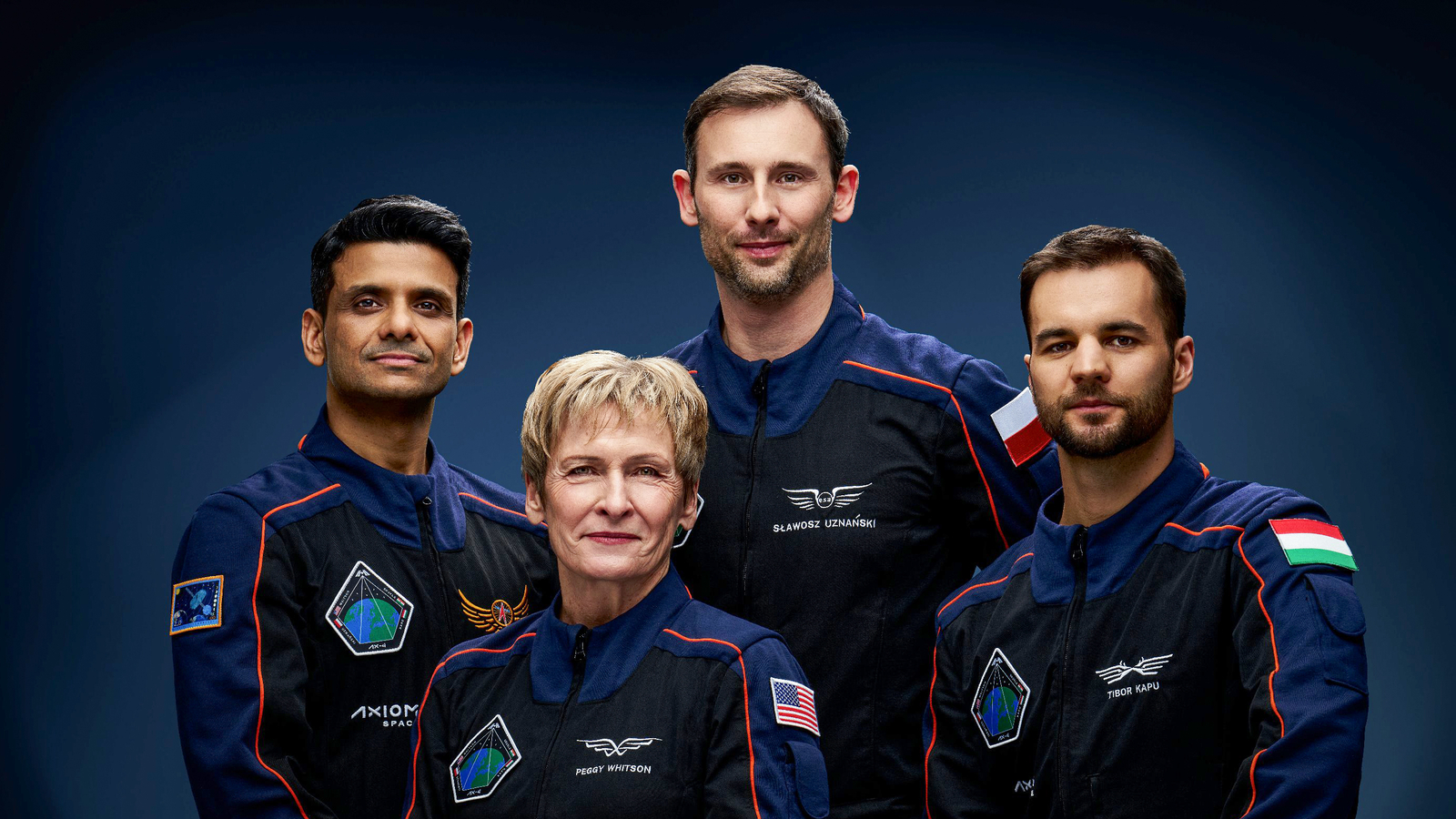The highly anticipated launch of the Axiom-4 mission, which includes Indian astronaut Shubhanshu Shukla, has been delayed yet again due to a technical snag with SpaceX’s Falcon 9 rocket. This marks the fourth postponement of the mission, which was earlier rescheduled to June 11 due to unfavorable weather.
The latest delay stems from a liquid oxygen (LOx) leak identified during post-static fire inspections of the rocket’s booster. SpaceX issued a statement on X saying, “Standing down from tomorrow’s Falcon 9 launch of Ax-4 to the space station to allow additional time for SpaceX teams to repair the LOx leak… Once complete – and pending range availability – we will share a new launch date.”
The launch was set to take place at 5:30 PM IST on Wednesday from NASA’s Kennedy Space Center in Florida. The crew includes ISRO astronaut Shubhanshu Shukla, Hungary’s Tibor Kapu, veteran NASA astronaut Peggy Whitson, and ESA astronaut Slawosz Uznanski-Wisniewski of Poland.
ISRO chairman V Narayanan confirmed that the leak was detected during a seven-second hot test on the launch pad. “Based on discussions with Axiom and SpaceX experts, it has been decided to correct the leak and carry out necessary validation tests before clearing for launch,” he said in a statement.
The Falcon 9 rocket, which is partially reusable, had previously flown a Starlink mission in April 2025. SpaceX’s VP of build and flight reliability, William Gerstenmaier, elaborated during a press conference that the leak may not have been properly addressed during the booster’s refurbishment. Additional issues, including a problem with engine 5’s thrust vector control, were also discovered and fixed.
The next available launch window is on June 12, but SpaceX has not confirmed if the rocket will be ready in time. NASA’s ISS program manager Dana Weigel stated that launch opportunities remain open through June 30, with more in mid-July if needed.
This mission is notable for marking the first Indian private astronaut’s journey to the International Space Station and is also part of a broader scientific agenda that includes space medicine research involving diabetes.













